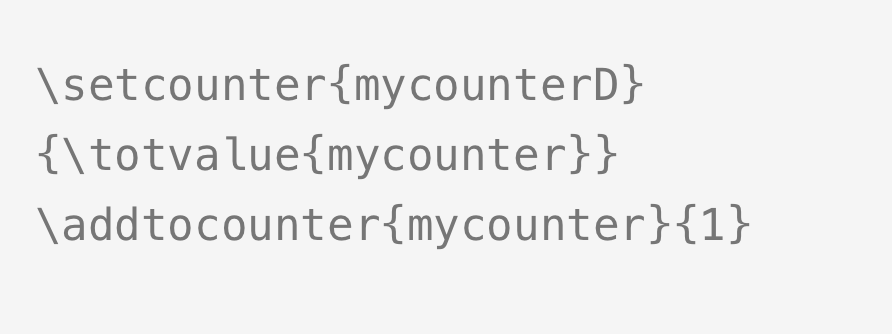LaTeX has ability to integrate many standard and user-defined counters that count from a, b, …, roman and arabic numbers and many more. Even counting backwards are relatively straightforward if you set a static number from which LaTeX can count downwards. Dynamically setting the value from which LaTeX is, however, slightly more difficult:
To do so, you first need to load the usepackage
\usepackage{totcount}You then need to specify two sets of counters in the preamble, say, mycounter and mycounterD:
\newcounter{mycounterD}
\newtotcounter{mycounter}Where mycounterD will be the counter that counts reverse (and mycounter counts the total number of items). Just after the \begin{document}, you will then need to initialize the counters by writing:
\setcounter{mycounterD}{\totvalue{mycounter}}
\addtocounter{mycounter}{1}And wherever you want to decrement the counter, add the following code (can be shortened with a \newcommand environment):
\addtocounter{mycounter}{1}
\addtocounter{mycounterD}{-1}I hope this works for you!

